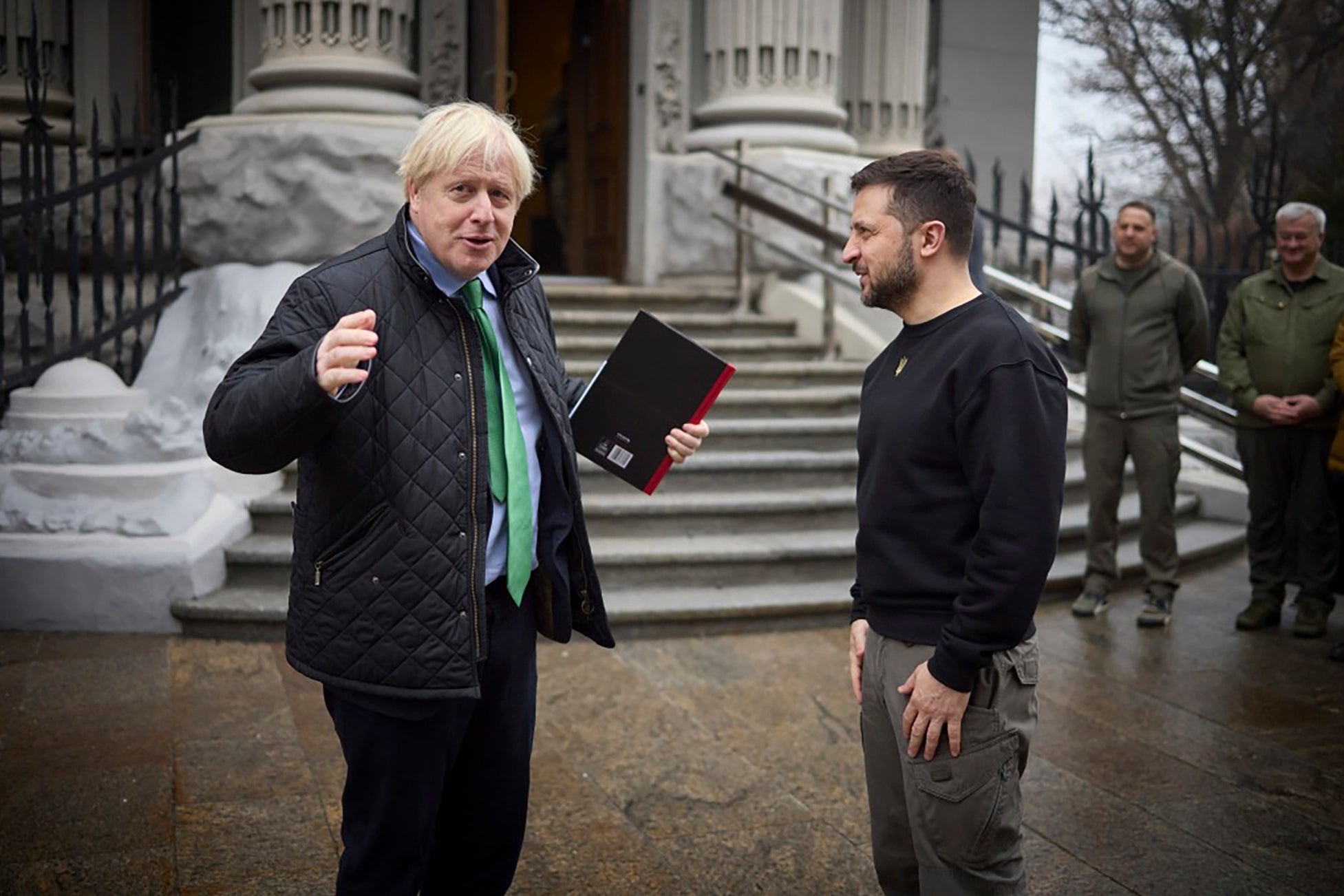Is there more to Boris Johnson’s trip to Ukraine?
Sean O’Grady on the former PM’s latest visit to Kyiv as rumours abound of a No 10 comeback bid


Boris Johnson made a surprise visit to Kyiv and the towns of Bucha and Borodyanka, where he witnessed the destruction left after the Russian occupation in March last year, including massacres of civilians.
Why was Boris Johnson in Kyiv?
To be fair to Johnson, he was one of the first Western leaders to comprehend the menace of Russian intentions towards Ukraine, and was a driving force in delivering assistance after the invasion last February. So his commitment to Ukraine is hardly in doubt. He has visited the country on numerous occasions as prime minister and after, and has the same sense of sorrow about the murderous onslaught by Vladimir Putin’s forces and their vicious mercenary allies, the Wagner Group. Johnson always seems to be warmly welcomed by President Zelensky and the Ukrainian people he encounters.
Why now?
The war is at a critical point, with the attitude of the German government towards sending Leopard 2 tanks central to the success of the Ukrainian effort. Johnson can perhaps be more direct than the prime minister or the foreign secretary. For example, on his latest visit, Johnson declared: “The only way to end this war is for Ukraine to win – and to win as fast as possible... This is the moment to double down, and to give the Ukrainians all the tools they need to finish the job. The sooner Putin fails, the better for Ukraine and for the whole world.”
What do his critics say?
They have long derided Johnson’s visits to Ukraine as distractions from troubles at home. Some have detected a correlation between the trips made to Kyiv when he was prime minister and particularly difficult political moments at home, including moments when anger over Partygate was at a peak.
Nowadays they claim that Johnson is showboating and trying to look prime ministerial as part of a rumoured comeback bid. His meeting with Volodymyr Zelensky, across a conference table with national flags in place, certainly resembled a traditional summit between leaders.
Is there a danger of ‘freelance’ diplomacy?
Fortunately for all concerned, the Ukraine policy of the Johnson and Sunak governments appears broadly the same, though Sunak seems to spend more time looking at the efficiency of the aid and defence programmes. For his part, Sunak is said to be “supportive” of his predecessor’s activities, and his spokesperson says he is "always supportive of all colleagues showing that the UK is behind Ukraine and will continue to support them”. The foreign secretary, James Cleverly, and Johnson have long known and worked with each other, which should help personal relations, even if Johnson might find it difficult to forgive Sunak for his ousting last July. Johnson also took part in a panel discussion on Ukraine in Davos, which passed off without a diplomatic incident.
Should Boris Johnson be appointed a special envoy to Ukraine?
In many ways it would be an eminently sensible role for Johnson, and a useful outlet for his talents. As a campaigner and communicator he can raise the profile of the Ukrainian struggle at times when the media may tire of the story. Inside and outside parliament and government he would be an effective lobbyist for the country and the protection of Western interests.
The downside would be the scandals and controversies that seem to dog him relentlessly, and will demand much of his time in the coming months, not least the select committee into whether he misled the Commons about Partygate.
Are there ex-prime ministerial precedents?
Yes, though not precise ones. Tony Blair spent some years trying to broker peace in the Middle East as the special envoy of the “quartet” of the UN, US, EU and Russia. Gordon Brown has been the United Nations special envoy for global education since 2012 and is now also WHO ambassador for global health financing. Further back, Margaret Thatcher considered appointing predecessor Ted Heath as British ambassador to Washington, though in the end nothing came of it. Heath did go to Iraq on a semi-official and dangerous mission in 1990 to secure the release of British hostages held by Saddam Hussein in the run-up to the first Gulf war.






Join our commenting forum
Join thought-provoking conversations, follow other Independent readers and see their replies
Comments